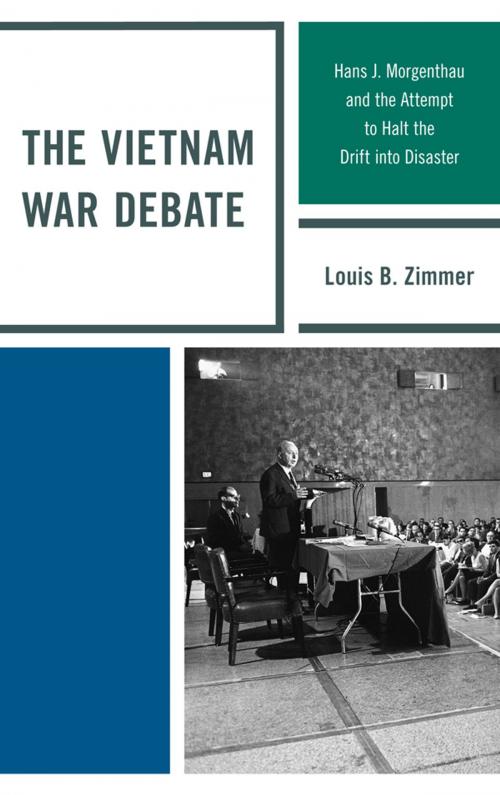The Vietnam War Debate
Hans J. Morgenthau and the Attempt to Halt the Drift into Disaster
Nonfiction, History, Military, Vietnam War, Asian, Americas, United States| Author: | Louis B. Zimmer | ISBN: | 9780739137710 |
| Publisher: | Lexington Books | Publication: | September 16, 2011 |
| Imprint: | Lexington Books | Language: | English |
| Author: | Louis B. Zimmer |
| ISBN: | 9780739137710 |
| Publisher: | Lexington Books |
| Publication: | September 16, 2011 |
| Imprint: | Lexington Books |
| Language: | English |
This book tells the story of how America's national leadership failed the nation and produced the greatest foreign policy disaster in American history to that time. It is foremost, however, the story of a great man who tried to halt his nation's drift into what became an American tragedy. It is also a story that has never before been told. As the war escalated, a variety of critics emerged to challenge the war policy and thus my book is about the national debate in which University of Chicago Professor Hans J. Morgenthau emerged as the chief opponent of the war. Morgenthau argued relentlessly in teach-ins around the country, in public debates and in hundreds of articles that Vietnam was never a threat to America's security and that the war should never have been fought.
In the history of the national debate on Vietnam, it is Morgenthau who is the hero of the anti-war movement and the centerpiece of my study. Morgenthau had written the basic text on foreign policy, Politics Among Nations, and had established the field of international relations as an independent discipline of study. His arguments against the war derive from these earliest writings and are elaborated in this book, the principles of which remain valid today. The war ended in 1975 as North Vietnamese troops marched into Saigon after over 58,000 American servicemen and millions of Vietnamese had died in the fighting. The war could have been averted, Morgenthau was ignored, American policy-makers misunderstood the nature of the civil conflict in Vietnam. As Morgenthau told an interviewer in July, 1965, "What I have said recently I have been saying for years, without anybody paying any attention."
This book tells the story of how America's national leadership failed the nation and produced the greatest foreign policy disaster in American history to that time. It is foremost, however, the story of a great man who tried to halt his nation's drift into what became an American tragedy. It is also a story that has never before been told. As the war escalated, a variety of critics emerged to challenge the war policy and thus my book is about the national debate in which University of Chicago Professor Hans J. Morgenthau emerged as the chief opponent of the war. Morgenthau argued relentlessly in teach-ins around the country, in public debates and in hundreds of articles that Vietnam was never a threat to America's security and that the war should never have been fought.
In the history of the national debate on Vietnam, it is Morgenthau who is the hero of the anti-war movement and the centerpiece of my study. Morgenthau had written the basic text on foreign policy, Politics Among Nations, and had established the field of international relations as an independent discipline of study. His arguments against the war derive from these earliest writings and are elaborated in this book, the principles of which remain valid today. The war ended in 1975 as North Vietnamese troops marched into Saigon after over 58,000 American servicemen and millions of Vietnamese had died in the fighting. The war could have been averted, Morgenthau was ignored, American policy-makers misunderstood the nature of the civil conflict in Vietnam. As Morgenthau told an interviewer in July, 1965, "What I have said recently I have been saying for years, without anybody paying any attention."















